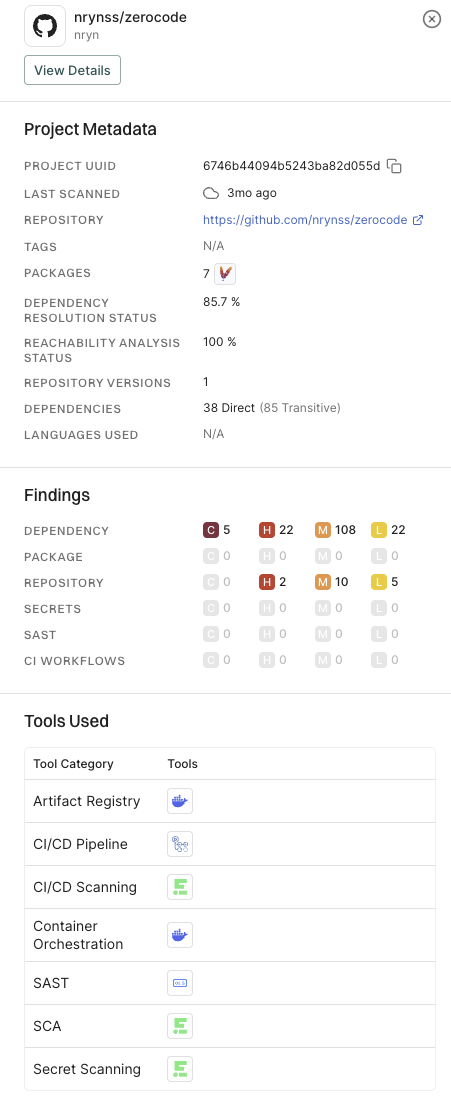Manage projects
Projects in Endor Labs represent your source code repositories. When you scan a repository, Endor Labs creates a corresponding project.
Select Projects from the left sidebar to view a list of all projects in your namespace.

You can view the following details in the Projects list:
- Source Code Management Platform - The icon that represents the source code management platform like GitHub, GitLab, Azure DevOps and Bitbucket.
- Project - The name of the project. Usually denoted as
SCM Organization/Project Name. - Findings - The condensed view of the number of critical, high, medium, and low severity findings in the project.
- Tags - The tags associated with the project.
- Packages - The number of packages in the project.
- Dependency Resolution Status - The percentage of packages that have been fully analyzed with no dependency resolution errors.
- Reachability Analysis Status - The percentage of packages eligible for reachability analysis that have been fully analyzed with no call graph errors.
- Last Scan - The elapsed time since the project was last analyzed by Endor Labs.
To sort projects by any column, click the column header to toggle the sort order between ascending (A–Z or oldest to newest) and descending (Z–A or newest to oldest), depending on the column type.
View project details
Select a row to view the project details. The project details appear in the right sidebar.

In project details, you can view the project metadata, finding details, and tools associated with the project.
View project findings
Click on Project to view the project findings. See View Findings for more information.
You can also scan your projects for AI models. See AI model findings for more information.
View packages in a project
Select Packages under Inventory to view the list of all packages maintained as part of your project. See Packages for more information.
Review past scan details
You can view the history of scans performed on a project, which enables you to review the security posture of your project over time. See Scan history for more information.
View dependencies
You can view all the dependencies associated with all the projects in your namespace. See Dependencies for more information.
Feedback
Was this page helpful?
Thanks for the feedback. Write to us at support@endor.ai to tell us more.
Thanks for the feedback. Write to us at support@endor.ai to tell us more.